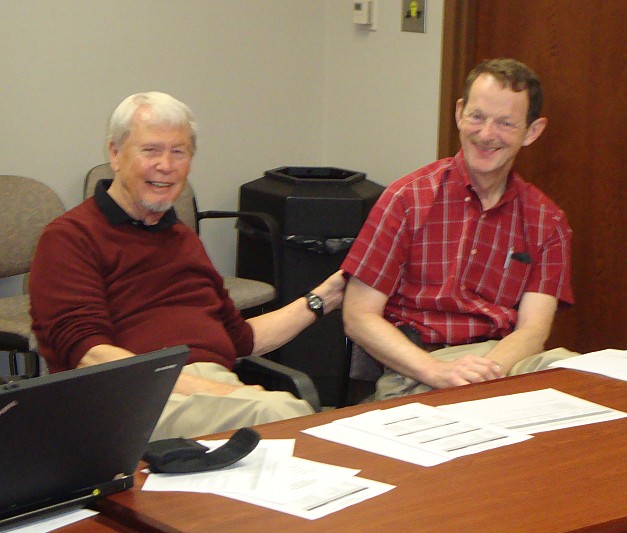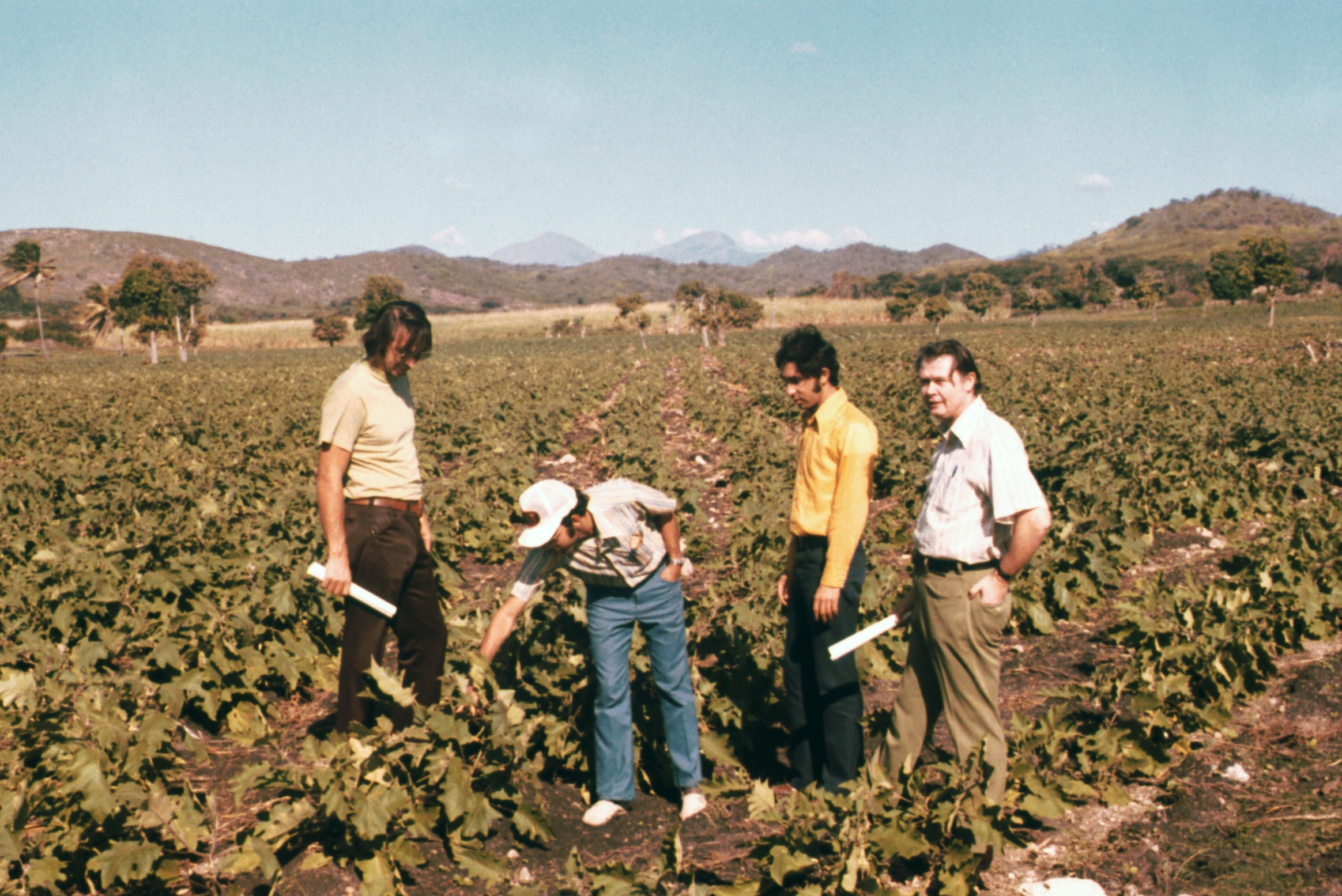Jim Shaffer, AFRE Professor Emeritus, passes on at age 97
Remembered fondly by many as a great mentor and intellect, Professor Emeritus Jim Shaffer has passed away
Department of Agricultural, Food, and Resource Economics (AFRE) Professor Emeritus Jim Shaffer passed on at the age of 97 on July 13, 2022. He is survived by his wife Helene, who currently resides in Sarasota Florida, as well as his large family, two children, Lauri Olsen and Cynthia Buchan who both reside in Michigan, three stepchildren, Joselyn Ferres Kelley, Christine Ferres Rohrer and Jack Ferres, and 10 grandchildren and great-grandchildren.
Dr. Shaffer was an innovative researcher, a strong mentor, and an outstanding teacher. He served the MSU community for 50 years, starting with his first course as a graduate assistant, Economics 101, in the fall of 1947. During that time his research interests spanned topics ranging from market behavior, institutions and policies to applied social science, consumer analysis and marketing in economic development. Throughout his career he was dedicated to the land grant university mission through extension, research, teaching and public service.

“He was a remarkable teacher, mentor and colleague,” said professor emeritus John Staatz, “who forced people to think outside the box. He was an empiricist who believed that economic analysis should be based on what one observed in the real world rather than trying to fit real-world phenomena into textbook economic theories that often assumed away many of the most important factors that motivate people's behavior. In research projects undertaken by faculty and grad students, the most productive sessions typically were early on, when Jim would brainstorm with the rest of us and ask critical questions that the rest of us had not thought about. Invariably, these cut to the heart of the issues we needed to investigate. The results of our work, be they analyses of how to design more effective collective bargaining among farmers in Michigan or how to design policies to improve food security in Africa, inevitably flowed from Jim's keen questions and insights into how people behaved. He influenced a huge number of colleagues, so even though Jim is no longer with us physically, his ideas and spirit certainly are.”
Shaffer was born in Indiana, Pennsylvania in 1925 but was raised in Michigan by his late parents, Harry and Erma Shaffer. He eventually went to school in Michigan as well, studying at Wayne State University, University of Michigan, and eventually earning his B.A. and Ph.D. from Michigan State University. His creativity and innovation were clear even from the beginning of his career. He applied unique approaches and pushed the boundaries of standard economic theory to solve real and complex social problems.
From a staff paper by University Distinguished Professor Emeritus, A. Allan Schmid, we have Shaffer’s own words on the start of his career, “My early interest in development was fanned by a program I participated in during the summer of 1947 studying the problems of economic reconstruction following WW II at several universities in Europe. Faced with the real problems in these areas it was obvious that the simplified models of economics were inadequate. More realistic ideas about behavior, organization, and constraints had to be used.”

His research interested shifted as he continued in his career, moving from consumer behavior research into questions of policy and organization in the U.S food system. His work in the 1960s was foundational to marketing and institutional obsolescence. It led to longstanding innovations within the U.S. Department of Agriculture (USDA) such as the idea of universal forward contracts as a new kind of support for farmers in addition to farm commodity markets and price support programs of the time. He also laid out policy issues surrounding USDA domestic food assistance programs and researched the possibilities of farmer cooperatives and collective bargaining power. He was deeply involved in undergraduate and graduate teaching and leadership, developing a new undergraduate curriculum in Public Affairs Management. As the major professor for over 50 graduate students, he was widely regarded as a truly excellent teacher who challenged his students with creative questions rather than long lectures.
Shaffer’s work was deeply collaborative in nature. He worked closely with his colleagues, creating an informal working group known as “The Spartan Group” with fellow economists that lasted for over a decade during the 1980s and 1990s. The core of the group was formed by Shaffer himself, along with Warren Samuels, Al Schmid, Steve Woodbury and Robert A. Solo. The group was named both for their collective “S” names and their pride in Michigan State University. Together, they co-authored a number of papers which were collaboratively discussed at their homes during weekly gatherings.
In the 1970s his work ranged far beyond the borders of the U.S., taking him to Africa, Costa Rica, Korea, Puerto Rico, and Colombia. He was involved with founding the Food Security group as a Co-PI for the Food Security II Cooperative agreement and the Food Security in Africa Cooperative Agreement.
“Jim Shaffer left a legacy with enduring effects on agricultural economics at MSU, at USDA, and in the Agricultural and Applied Economics Association, where he was named a Fellow in 1981. His thinking about markets as institutions helped to shape new ways for producers to exert market power,” said Scott Swinton, AFRE chairperson.
Not only was Jim Shaffer a powerful force for education within AFRE and MSU, he also was a civic leader who served for many years as the president of the East Lansing School Board.



 Print
Print Email
Email




